Orchestra in Henan Revives Ancient Chinese Music
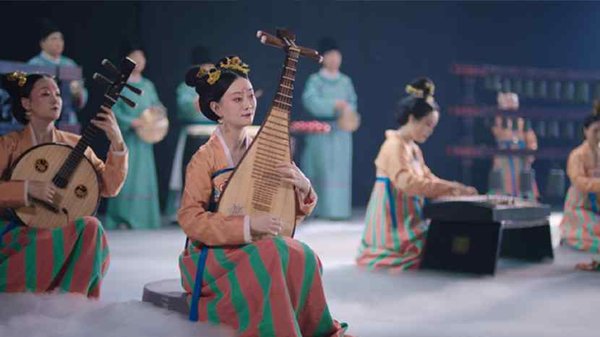 |
| Members of Huaxia Ancient Music Orchestra of Henan Museum, an orchestra that performs ancient Chinese music, are playing music with traditional Chinese instruments. [Courtesy of the Culture and Tourism Department of Henan Province] |
Ancient Chinese music has "traveled through time" and is amazing modern people, thanks to an ancient music orchestra affiliated with the Henan Museum in Zhengzhou City, central China's Henan Province.
Since its inception in 2000, the Huaxia Ancient Music Orchestra of the Henan Museum has reproduced and restored more than 1,000 ancient Chinese musical instruments of over 30 kinds, and discovered and performed nearly 200 ancient Chinese tunes. Its staff members have published more than 100 research papers, as well as over 10 books and CDs.
In 2014, the orchestra visited and performed at the National Gugak Center, an institution of learning for traditional Korean music in South Korea.
When Yuan Jiayin, a musician of the orchestra, was playing an ancient Chinese folk song with Se, a traditional Chinese musical instrument that is somewhat similar to the zither, one of the audience raised doubts about the authenticity of the instrument, which has long been lost in China.
"We were prepared for that. We played a slideshow to tell them everything about the instrument, in which we showed them ancient books and murals about Se, as well as archaeological discoveries. We also explained how we restored and recreated the instrument, " Yuan told People's Daily.
Joining the orchestra since it was set up, Yuan has been focusing on in the past 22 years.
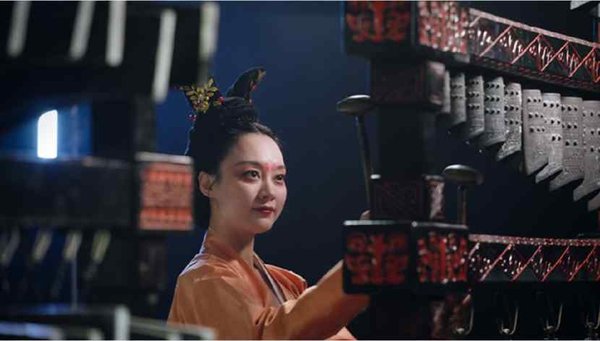 |
| A musician of Huaxia Ancient Music Orchestra of Henan Museum, an orchestra that performs ancient Chinese music, plays chime bells, an ancient Chinese percussion instrument. [Courtesy of the Culture and Tourism Department of Henan Province] |
"I was a guzheng (a traditional Chinese musical instrument similar to Se) player, and have been playing se since I joined the orchestra. Se looks just like Guzheng, only it has one more row of bridges and several more strings. Nevertheless, they are played in different ways and have different tones, so I had to learn from scratch," Yuan said.
In order to master the long lost skills required to play the instrument, Yuan dug deep into ancient books and drew inspiration from the playing techniques of traditional folk Guzheng music in Henan Province, which has been listed as a national intangible cultural heritage of China.
Years of efforts and perseverance have paid off. Yuan not only published many papers in scholarly journals, but took part in the compilation of books on Se.
"Our orchestra is also a research institute and a school," said Ma Xiaolin, curator of the Henan Museum. In addition to making instruments and searching for music scores, the orchestra also studies ancient music, which has been an important part of its daily routine over the past 22 years, according to Ma.
"We want visitors to learn history through not only visions, but also sounds," he said.
With instruments and scores, regular orchestras can perform at anytime, but the Huaxia Ancient Music Orchestra of Henan Museum has to make instruments and scores itself first, as the original ancient instruments are cultural relics and cannot be used, said Huo Kun, head of the orchestra.
"We have make copies of them. The scores of ancient music are in ancient books, so we have to search for them. Sometimes we need to browse through over 10 books before finalizing the score of a piece of ancient music. And after that, we need to translate the score with pentatonic scale before we can play it," Huo told People's Daily.
All the scores of the more than 100 ancient tunes played by the orchestra were developed bit by bit this way.
The orchestra performs twice a day and three times on holidays at the Henan Museum. It plays to a full house almost every time.
Ma emphasized that every member of the orchestra is both a performer and a scholar.
"Our museum is a research institute itself, and its orchestra must undoubtedly conduct research. Academic rigor is a basic requirement for us when restoring and playing ancient musical instruments," said Ma, adding that the museum aims to cultivate performers who are also scholars.
Yan Wentao, a Gen-Z musician of the orchestra, described the orchestra as a school where young people can grow fast.
When Yan joined the orchestra in 2018, he was assigned with the task of replicating and playing Jiahu bone flute, the most precious treasure of the museum and also China’s earliest physical musical instrument which dates back more than 8,000 years ago.
Yan received a 400-page monograph on the instrument complied by the museum from Huo when he joined the orchestra. Through painstaking efforts, Yan successfully reproduced his first bone flute under the guidance of experts.
Besides performing ancient Chinese music, the orchestra is also trying other music styles. For instance, by playing pop music and classic music with ancient instruments, it has won wide praise from the audience for its attempts at combining the ancient and the modern, as well as the Chinese and the Western.
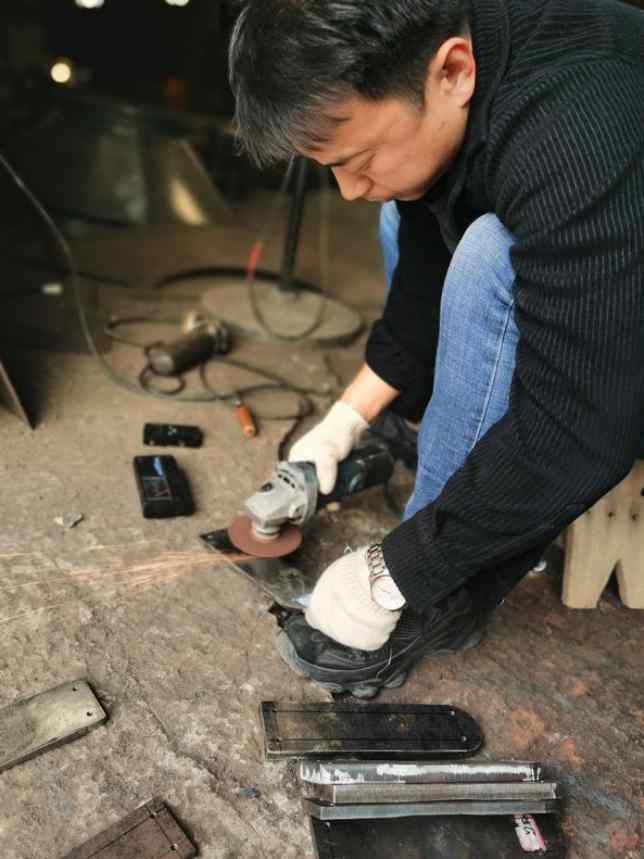 |
| A member of Huaxia Ancient Music Orchestra of Henan Museum, an orchestra that performs ancient Chinese music, tries reproducing ancient instrument. [Courtesy of the Culture and Tourism Department of Henan Province] |
Earlier this year, the orchestra adapted and performed Hedwig's Theme from Harry Potter films, and the adaptation of the leitmotif soon went viral on the Internet. Many people asked the orchestra to provide a download link so that they can use the music as their ringtone. The orchestra has also livestreamed its shows, creating an "ancient music fever" across the country.
"Culture relies on dissemination to maintain its vitality. The Internet has gradually become a main front for us," Ma said, noting that innovation has always been a tradition of the orchestra.
(Source: People's Daily Online)
Please understand that womenofchina.cn,a non-profit, information-communication website, cannot reach every writer before using articles and images. For copyright issues, please contact us by emailing: website@womenofchina.cn. The articles published and opinions expressed on this website represent the opinions of writers and are not necessarily shared by womenofchina.cn.

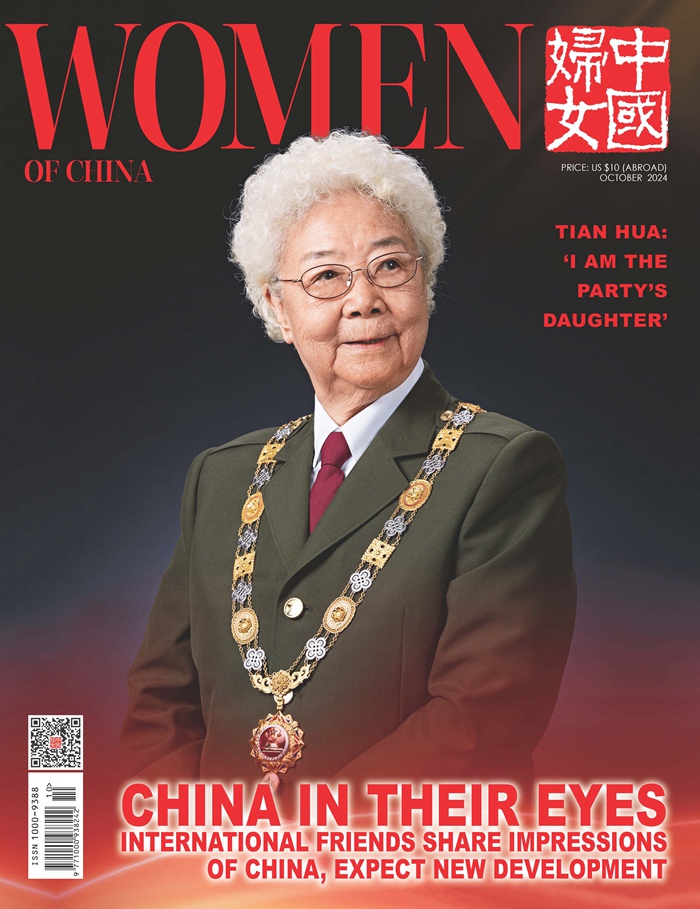


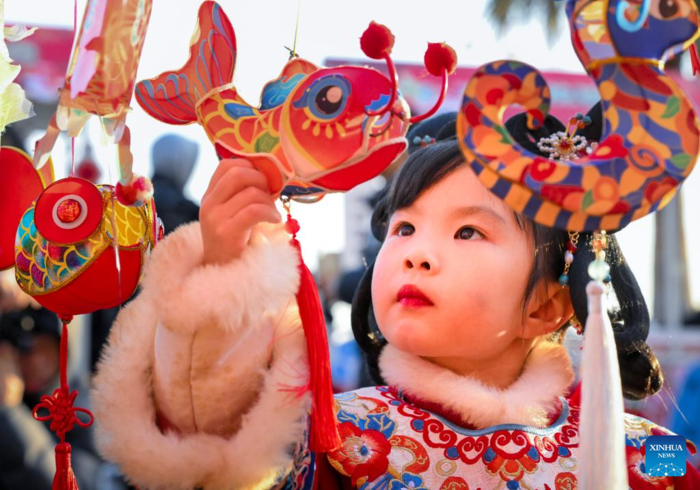
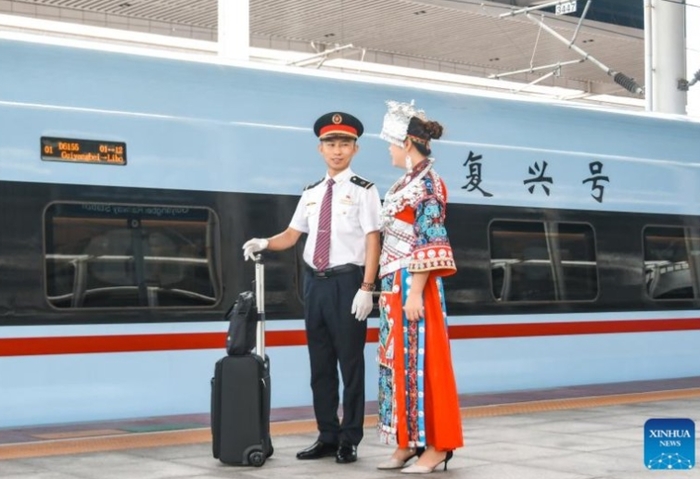
.jpg)

 WeChat
WeChat Weibo
Weibo 京公网安备 11010102004314号
京公网安备 11010102004314号